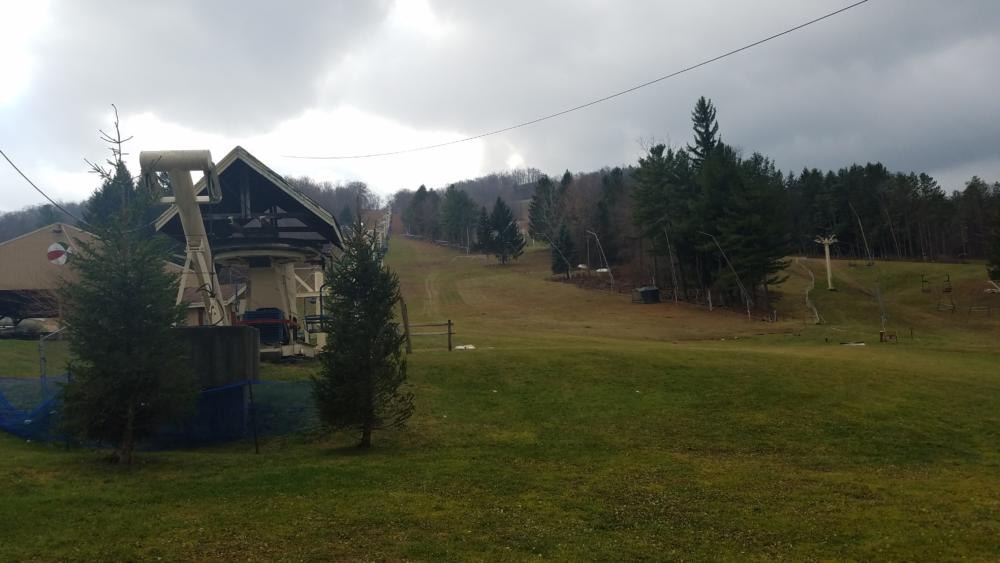Operators at Berkshire County’s ski areas are hopeful they will be able to open for the season in the coming days and weeks, if the weather cooperates, like it did this week. Last winter’s mild temperatures and low snowfall caused mountains to lose money and hampered the region’s tourism industry. There are a lot of people keeping their fingers crossed for a more typical New England winter this season.
Last weekend, the Berkshires were hit with a storm that dumped up to a foot of snow in some places. This wasn’t the case during the previous winter at places like Bousquet Mountain in Pittsfield. Owner Sherry Roberts said warmer than usual temperatures caused havoc with business.
“We would make snow one night, and a day or two later we’d get some rain , so it was certainly a tough year,” Roberts said.
That made for a tough season financially too. Roberts said she was only able to perform bare-bones maintenance to the mountain in preparation for this year because they didn’t make enough money to do more. She’s trying remain optimistic though:
“Last year is behind us. We’re looking forward,” Roberts said.
Bousquet wasn’t alone. The ski industry across the northeast and in Massachusetts took it on the chin last winter. Mountain operators described it as a “gut punch”, “disaster”, and in one case, didn’t even want to talk about it. According to the National Ski Areas Association, after three years of steady business across Massachusetts, lift ticket sales were down 38-percent last ski season. That’s about a 500,000.
In Berkshire County, where officials said tourism is a $450-million-a year business. Lauri Klefos of 1Berkshire, the area’s chamber of commerce, said the mild winter had a big impact, including in the lodging industry.
“We saw a decline starting in December last year, it went right through to January, went through to March, actually,” Klefos said. “And that is absolutely attributed to the lack of snow,” Klefos said.
Klefos says other businesses, such as restaurants, felt it too. But, she said not all is lost when snow isn’t flying however.
“People who have travel plans and have already made reservations come anyway and are looking for an alternative,” Klefos said. “We see an up-tick sometimes in theaters and museums and shopping.”
Another ski area taking a financial hit last winter was Jiminy Peak in Hancock, which is the largest in Berkshire County. At the height of the season, CEO Tyler Fairbank said they have up to a thousand people working there, which in itself can have a positive impact on the economy. He’s hoping new snowmaking equipment will help lead to a better year.
“We’re doubling the amount of snow that we can make,” Fairbank said. “We’re reducing the amount of energy that it takes to have that doubled amount of snow in half. So we’re getting twice as much for half the cost.”
It still requires cold enough temperatures to fire up the snow guns, though. Fairbank called Mother Nature “a fickle business partner” and said they could use her help.
“This is a very important winter for us,” Fairbank said. “We need a good winter. We need a ball to bounce in the right direction for us, not just as a ski resort, but for the Berkshires on a whole.”
So after an off-year business-wise, what can help get people back on the slopes of the Berkshires?
“People look out their back window, they see snow, they’re in the mood for skiing, they’re in the mood for outdoor winter sports,” Fairbank said. “They don’t see it, they’re not necessarily thinking it, they’re not in the mood, whether or not they are educated as to what we have for available terrain and open terrain…it sets the mood for sure.”
The forecast for the upcoming winter is a bit murky: According to the National Climate Prediction Center, there are equal chances of above or below average temperatures and precipitation for the Berkshires over the next three months. .
